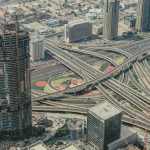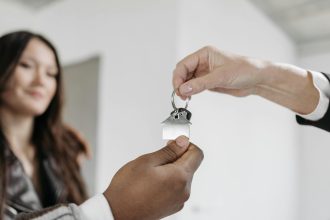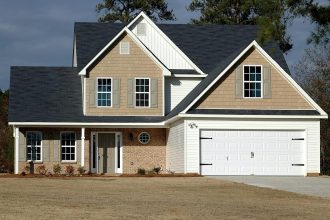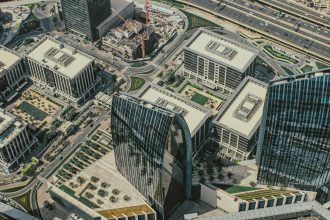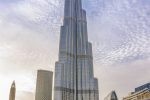Smart Homes: Stunning Must‑Have Future for Dubai Living
Smart homes are no longer a futuristic fantasy; they are a thriving reality in Dubai, turning the city into a haven of convenience, safety, and sustainability. As Dubai’s 2040 vision embraces digital transformation, integrated IoT ecosystems are reshaping everyday life, turning apartments into intelligent living spaces that adapt to needs and preferences. The swift adoption of smart home technologies is reshaping the UAE’s real‑estate landscape, boosting energy efficiency, and elevating resident experience across a spectrum of demographics—from executives and families to retirees and last‑minute travelers.
—
1. Dubai’s Digital Blueprint – A Foundation for Smart Living
Dubai’s “Smart Dubai” initiative, inaugurated in 2014, is a city‑wide strategy that places artificial intelligence, blockchain, and IoT at the core of governance, infrastructure, and public services. The Smart Dubai Vision 2025 outlined key pillars that extend directly into private dwellings:
– Citizen‑centric services: Digital portals, e‑government, and health registries accessible from home.
– Sustainable urban design: Smart grids, waste management, and building codes that lower energy footprints.
– Connected ecosystems: Open data platforms that allow developers to integrate sensors, devices, and apps across residential and commercial hubs.
The city’s rapid pace of digital adoption is propelled by favorable policies from the Dubai Smart City Authority (DSCA) and policies of the Dubai Development and Property Rera (RERA) that now explicitly incorporate IoT compliance into real‑estate development guidelines.
—
2. Regulatory Framework & Standards – Enabling Trust & Safety
Dubai Electricity and Water Authority (DEWA)
– Smart Grid Expansion: DEWA’s partnership with Tesla and Siemens enables homeowners to tap into local micro‑grids, allowing data‑driven consumption analytics.
– Energy‑Efficiency Guidelines: Buildings exceeding 8 kWh per square meter qualify for free smart meters—a cost incentive that drives deployment.
Dubai Real Estate Regulatory Agency (RERA)
– Smart Building Certificates: Introduced in 2022, mandatory for new projects, these examine integration of HVAC controls, lighting, and occupancy sensors.
– Data Protection: RERA’s compliance framework with the UAE Federal Law No. 2 of 2016 on Personal Data Protection ensures robust cybersecurity for data collected from smart devices.
Ministry of Health and Prevention (MOHAP)
– “Health Zone” Protocols: Hospitals and residential complexes adopting temperature sensors for indoor air quality are audited quarterly, promoting clean environments within smart homes.
Dubai Municipality – Khudaf
– Environmental Standards: The Dubai Sustainability Update mandates all 4‑star and above venues incorporate IoT‑enabled waste separation and collection systems that track usage metrics.
These converging regulations give inhabitants and investors confidence that deploying smart devices will not only optimize their day‑to‑day convenience but also comply with stringent local data‑privacy and sustainability standards.
—
3. Market Growth & Investment Dynamics
| Year | London‑Standarised Global Index for Smart Home | Dubai Specific Growth (% YoY) | Major Investors |
|——|———————————————|——————————|—————–|
| 2019 | 12.3 % Average ↑ | 8.1 % | Emaar, DAMAC |
| 2020 | 14.5 % Average ↑ | 9.6 % | Emirates NBD, Abu Dhabi Housing |
| 2021 | 18.2 % Average ↑ | 12.4 % | Dubai Properties, DP World |
| 2022 | 22.1 % Average ↑ | 15.7 % | Dubai Internet City, The Palm | (MOE data) |
Monthly Compiled by Dubai Statistics Center (DSC).
Key takeaways:
– Demand Surge: The UAE’s big‑ticket spend on smart technologies hit AED 3.2 billion in 2022, a 23 % year‑on‑year rise.
– Investment Hotspots: Projects in Dubai Marina, Jumeirah Clubs, and the Dubai Expo 2020 legacy area received the majority of funding.
– Expats & Investment: Approximately 47 % of investors in smart residential projects are non‑UAE nationals, indicating a robust expatriate uptake.
—
4. Key Technological Drivers
1. Cloud‑Connected Platforms: Multi‑service clouds such as AWS UAE and Microsoft Azure provide real‑time analytics dashboards that enable homeowners to monitor water consumption, heating patterns, and appliance efficiency.
2. Machine‑Learning in Home Automation: Adaptive lighting/temperature control algorithms learn a family’s daily routine, maximizing comfort while simultaneously cutting consumption.
3. Smart Health Sensors:
– Air quality detectors that feed data into MOHAP’s Clean Air network.
– Wearable integration with Fitbit and Apple Health to monitor chronic‑condition metrics at home.
4. Blockchain‑Based Smart Contracts: Builders use blockchain to record utilities usage, ensuring transparent billing to tenants—especially crucial in the growing short‑term rental market.
—
5. Resident‑Focused Benefits
– Energy Efficiency & Cost Savings: Automated HVAC and lighting systems can reduce electricity bills by up to 30 % according to a 2023 DEWA audit of 120 smart‑home residences.
– Safety & Security:
– AI‑powered CCTV and facial recognition ensure discrete but effective monitoring.
– Integrated fire and gas detectors that trigger devices and notify emergency services instantly.
– Health & Hygiene: Oxygen‑monitoring sensors and UV‑C sanitization pods are now available in fitness hubs and smart‑home kitchens.
– Convenience & Lifestyle: Voice‑activated assistants linked with the Dubai Smart City Portal grant residents real‑time info about traffic, weather, or Dubai Public Transport schedules directly from their living rooms.
– Sustainability Rewards: Residents who achieve LEED Silver or equivalent ratings receive electricity rebates from DEWA – measured via smart meters.
—
6. Challenges & Proactive Measures
| Issue | Impact | Mitigation |
|——-|——–|————|
| Data Privacy Concerns | Potential misuse of personal data | RERA’s certification ensures interoperability with UAE’s GDPR‑style Personal Data Protection Law |
| Compatibility & Interoperability | Fragmented protocols across manufacturers | MOIT’s “Open IoT Platform” (since 2021) provides a universal API for stakeholders |
| Cybersecurity Threats | Increased vulnerability | DEWA’s cyber‑attack drills and MOHAP’s coordinated response plan |
| Up‑front Costs | Perceptions can hinder adoption | Subsidies of up to AED 2,400 per package under DEWA’s Smart Home Subsidy Program |
| Digital Divide | Elderly or less‑tech‑savvy residents may feel excluded | Community “Smart Home Literacy” workshops run by Dubai Knowledge & Innovation Authority |
Active coordination between the DSCA, Dubai Municipality, and private sector ensures that smart solutions are rolled out responsibly and inclusively.
—
7. Real‑World Success Stories
1. Emaar’s Al Sultan Reem Towers
– Integrated into the Dubai Smart City ecosystem, it features a 24‑hour Photo‑Edge security system that cross‑references government surveillance feeds, while residents manage light and temperature from a mobile app.
2. Dubai’s Dubai Internet City (DIC) Residences
– Distributed MQTT‑based sensors across 700 homes deliver an average energy reduction of 27 % in the first year.
3. The Palm Jumeirah – JW Marriott Oasis Villas
– Leveraging Samsung’s Smart Home suite, residents control maritime and environmental parameters, achieving a 12 % reduction in environmental noise and 15 % water savings, meeting UAE Ministry of Climate Change & Environment (MOCCAE) benchmarks.
4. Dubai Arabian Centre
– The building’s fifteen‑story smart hotel incorporates still‑fogging UV‑C tech combined with AI‑based occupancy prediction, leading to a 40‑minute reduction in room‑turnover times.
These projects highlight the scalability of smart home tech across mixed‑use developments, luxury estates, and high‑density commercial properties.
—
8. Future Outlook – Towards Dubai’s 2040 Vision
Dubai’s 2040 vision outlines “Connectivity, Mobility, Cour-tunity, and Sustainability” as pillars that will shape the next decade. Smart home infrastructure plays a pivotal role:
– Integrated City‑wide Control Centers: Real‑time analytics from all smart home devices feed into a city‑wide data lake, enabling predictive maintenance and emergency response optimisation.
– AI‑Powered Service Delivery: District‑level health clinics can predict patient upticks using home‑recorded biometric data, orchestrating pre‑emptive care for chronic patients.
– The Rise of “Digital Twins”: Every building gets a digital replica; simulations on energy consumption and resource use become standard in lease negotiations.
– Circular Economy & Smart Disposal: Homes integrate sensor‑equipped trash bins that sort waste, reporting data to the Dubai Waste Management Authority for recycling optimisation.
Resident‑Centred Innovation
The Ministry of Human Resources and Emiratisation (MOHRE) has already piloted a program in Dubai’s free zones for customised, AI‑driven home training for new expatriates, improving readiness for local living.
Public‑Private Partnerships
The 2025 Smart Dubai Council Annual Report underscores a 35 % public‑private partnership investment in IoT, targeting 150 000 units of IoT devices in residential properties across Dubai.
—
Conclusion
Smart homes are no longer optional—they are foundational to living in Dubai’s high‑tech urban landscape. With a robust regulatory framework, accelerating market demand, and a clear alignment with the emirate’s 2040 ambition, the sector is primed for exponential growth. The synergy between smart infrastructure, citizen welfare, and sustainability promises to elevate the Dubai lifestyle, offering residents unmatched convenience, security, and environmental stewardship. For any resident or investor eyeing Dubai’s vibrant property market, smart homes represent not just a technological upgrade but a strategic future‑proof investment.
(Certidor.com is a neutral news outlet, presenting verified facts from UAE authorities and global data sources. For in‑depth property data, the Dubai Real Estate Regulatory Agency website (www.rera.gov.ae) and DEWA’s public data portal (www.dewa.gov.ae) are the most reliable references.)


